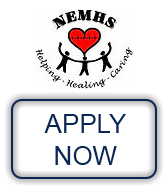Physical Therapy
Physical Therapy (PT) may be beneficial for you if you've had an injury or illness that has impacted your strength, mobility, and/or function. Physical therapy can be both corrective and preventative. Physical therapists can correct functional movement imbalances and they can also implement techniques to prevent injury and improve performance. People of all ages benefit from physical therapy. Physical Therapy is care that aims to ease pain and help you function, move, and live better. You may need it to:
- Relieve pain
- Improve movement or ability
- Prevent or recover from a sports injury
- Rehab after a stroke, accident, injury, or surgery
- Work on balance to prevent a slip or fall
- Manage a chronic illness like diabetes, heart disease, and arthritis
- Recover after you give birth
- Adapt to an artificial limb
- Learn to use assistive devices like a walker or cane
Our physical therapists evaluate your condition and develop a plan of care with you that guides your therapy. Your therapy session may consist of hands-on treatment, exercises, or functional activities. Treatment plans are created collaboratively with you and are modified as needed to help you reach your goals.
Occupational Therapy
Occupational Therapy (OT) may be beneficial for you if you have pain, injury, illness, or a disability that makes it hard for you to do your job or schoolwork, care for yourself, complete household chores, move around, or take part in activities. Occupational therapists use therapeutic techniques to improve, rehabilitate, or maintain a patient's motor skills and overall ability to perform everyday activities ("occupations"). It can help you perform any kind of task at school, work, or in your home. You may learn how to use tools such as adaptive equipment or assistive devices to improve independence. OT can help you do specific things like:
- Eat without help from others
- Take part in leisure activities
- Do office work
- Bathe and get dressed
- Do laundry or clean up around the house
- Move about your home safely
- Meet developmental milestones
- Improve body mechanics and ergonomics
- Rehab after a hand/wrist injury
We also offer a specialized treatment program called LSVT- BIG. This is an intensive, effective, one-on-one treatment created to help people with Parkinson's Disease (PD) and other neurological conditions address walking, balance, and other activities of daily living (e.g. writing, dressing and getting up from low chairs) or even job-related tasks.
Getting Started
If you would benefit from therapy services, you may be referred by your primary care doctor, orthopedic specialist, surgeon, or another physician.
Fax (406) 653-6570
Rehab Scheduling (406) 653-6409

